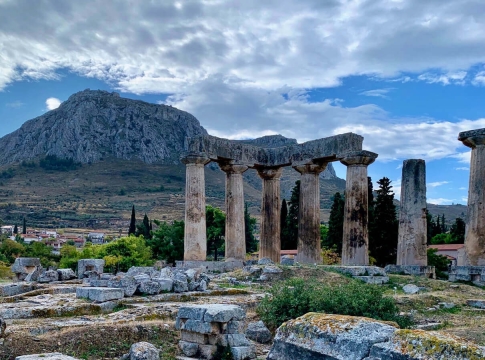
The Acts of Jesus Christ
One of the Bible’s best-known books is the book of Acts. It appears to be chock-full of fascinating tales about the apostles’ exploits. They travel the world, revive the dead, break out of jails, and appear before kings for trial. Acts, however, is more about Jesus Christ—who continues to exert even greater influence in this world after His ascension—than it is about the apostles. This essay will provide a brief synopsis of Acts and discuss the lessons that may be drawn from it.
Author, addressees and aim of the book
Luke, the physician who also penned the gospel bearing his name, wrote the book of Acts. Theophilus is honored in both the Gospel of Luke and the Acts (Luke 1:3; Acts 1:1). Theophilus, which translates to “lover of God,” may or may not have lived, or his name may have been a myth. Luke aims to clarify in Acts that there were repercussions to Jesus’ life, death, and resurrection. Rather, the Holy Spirit was given to [Jesus’ followers], who then went on to spread the good news of God’s tremendous works all throughout the world. In what precise manner was that accomplished?
Structure of the book
A circular motion that progressively broadens in scope can be used to describe an act. The recurrent series of occurrences makes the circular movement clear:
- When they get to a new location, Christian leaders share the gospel.
- Hearers come to faith
- Opponents begin to persecute the Christian leaders
- God intervenes to save the leaders and protects His church.
Beginning in Jerusalem, the expanding movement travels through Judea and Samaria until arriving in Rome, the epicenter of the then-known world. Jesus said, “But you will receive power when the Holy Spirit has come upon you, and you will be my witnesses in Jerusalem and in all of Judea and Samaria, and to the end of the earth.” This is how His parting promise is fulfilled.(Acts 1:8).
A sermon is included in one-third of Acts, along with a travelogue. Three of the top 10 sermons are attributed to Peter, one to Stephen, and six to Paul. Paul defended his acts in Jerusalem in his final three addresses. The first three sermons have a missionary theme and are addressed to various audiences. Acts 13:16–47 records that Paul spoke to Jews first, followed by Gentiles (Acts 17:22–31), and Christians (Acts 20:18–35). We shall now go into greater detail on the contents of the book of Acts.
Acts 1:1-5:42
The apostles’ testimonies in Jerusalem are the subject of Acts’ first major section. On the Day of Pentecost, the apostles were greatly emboldened to proclaim that Jesus was the long-awaited Messiah due to the outpouring of the Holy Spirit. On that day, the Holy Spirit introduced 3,000 new members to the Christian church (Acts 2:41). The Jewish aristocracy fiercely opposed the apostles, just as they did Jesus. Acts 4–7 describe how they were forced to answer to the Council, sent into prison in Acts 5, and even stoned to death. But [God continued to work via these attacks]. The church continued to expand dramatically.
Acts 6:1-12:25
The apostles’ testimony in Judea and Samaria is the main subject of the second half of Acts. The task of providing for the impoverished was assigned to deacons. The Jewish authorities stoned Stephen, the most well-known of them, to death. Saul was a fervent young man who severely persecuted the church and took part in the stoning (Acts 8:1). But after meeting Jesus, he realized he was headed in the wrong direction. He underwent a significant life transition and became an apostle. The missionary travels of this Saul, commonly known as Paul, are the subject of the second half of Acts.
The dilemma of whether Gentiles [should also keep the Jewish laws or not] emerged as more and more of them became members of the church. Gradually, it became apparent that a new age had started, where God was operating in a distinct manner from what He had done before. Promises made in the Old Testament regarding the coming inflow of peoples were starting to come true. Following the heavenly revelation given to Peter in Acts 10, the experiences of Paul and Barnabas in Acts 13, and the first council in Acts 15, it was determined that Gentile believers did not require intricate ceremonial laws as long as they abstained from idolatry and sexual impurity.
Acts 13:1-28:31
We have now reached the third major chapter of Acts. Acts 13 onwards brings the entire world into perspective. Now the kingdom of God becomes global in scope. The Antioch church dispatches Paul, first to Galatia (present-day Turkey) and then to Cyprus (Acts 13–14). During his second journey, he arrives in Asia Minor and then makes his way to Greece and Macedonia. He returns on the third tour, visiting all the churches in the same cities. In the end, he goes back to Jerusalem.
Acts’ final seven chapters are all about Paul’s trial. The tensions between Christians and Jews reach a breaking point. Paul must rely on God’s power to defend his beliefs. He uses the chance to bear witness to God’s amazing works in his life. Paul appears before the emperor, the governor, and even the king (Acts 27–28; see also Acts 9:15). He even travels to Rome for this purpose. As a result, the gospel unexpectedly spreads throughout the entire world, fulfilling Acts 1:8’s prophecy.
Summary
A brief synopsis of the church’s development is provided by Luke in a number of locations, including Acts 2:42–47, 4:32–35, 5:12–16, 19:10, and 28:30–31. These passages specifically illustrate the main points of God’s purpose. They also demonstrate where we ought to concentrate. Considering that we have the same mission as the apostles, which is to testify to the Gospel! Now, all of the believers shared a single heart and soul, and nobody claimed that everything that belonged to him was his own; instead, they were all of one mind and one heart. The apostles testified to the Lord Jesus’ resurrection with tremendous authority, and they were all showered with favor.(Acts 4:32–33).





